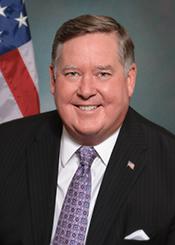H.R. 251: Legal Workforce Act

Quick Facts:
Bill Sponsor: Rep. Ken Calvert (R-CA-41)
Congress: 119
Date Introduced: Jan. 9, 2025
Last Action: Referred to the Committee on the Judiciary, and in addition to the Committees on Ways and Means, and Education and Workforce, for a period to be subsequently determined by the Speaker, in each case for consideration of such provisions as fall within the jurisdiction of the committee concerned. (Jan. 9, 2025)
Legal Workforce Act
This bill makes E-Verify permanent and mandatory for all employers. E-Verify would replace the I-9 system and quickly establish employment authorization for employees, giving employers safe harbor if they use the system in good faith.
The bill phases in mandatory use for all new hires as follows:
- Employers of more than 10,000: 6 months
- Employers of more than 500: 1 year
- Employers of more than 20: 2 years
- Recruiters and referrers: 1 year
- Agricultural employers: 2.5 years
Employers of 50 or less can receive a one-time 6-month extension to comply.
Employers have to reverify those with limited work authorization (with the same phase-in period and classes above)
The Social Security Administration is required to notify employees if their Social Security number has been used multiple times in an unusual manner (also known as no-match). DHS is also required to establish programs for blocking and suspending misused numbers.
Penalties are increased for knowingly hiring illegal aliens.
State laws on E-Verify are preempted by the law, but states are authorized to penalize businesses using state business licenses.
Rep. Tom McClintock (R-CA-5) (Jan. 9, 2025)
Rep. Ed Case (D-HI-1) (Feb. 4, 2025)
Rep. Andy Biggs (R-AZ-5) (Feb. 4, 2025)
Rep. Ann Wagner (R-MO-2) (Feb. 4, 2025)
Rep. Sheri Biggs (R-SC-3) (Feb. 6, 2025)
Rep. Brandon Gill (R-TX-26) (Feb. 27, 2025)
Rep. Chris Smith (R-NJ-4) (March 11, 2025)
Rep. Lauren Boebert (R-CO-4) (May 7, 2025)
Rep. Mike Collins (R-GA-10) (May 8, 2025)
Rep. Lloyd Smucker (R-PA-11) (July 10, 2025)
Rep. Troy Nehls (R-TX-22) (Aug. 19, 2025)
Rep. Russell Fry (R-SC-7) (Aug. 19, 2025)
Rep. Chip Roy (R-TX-21) (Aug. 26, 2025)
Rep. Warren Davidson (R-OH-8) (Aug. 26, 2025)
Rep. Andy Barr (R-KY-6) (Oct. 10, 2025)
Rep. Wesley Hunt (R-TX-38) (Oct. 17, 2025)
Rep. Michael Cloud (R-TX-27) (Oct. 17, 2025)
Rep. Randy Fine (R-FL-6) (Oct. 24, 2025)
Rep. Tony Wied (R-WI-8) (Nov. 7, 2025)
Rep. Byron Donalds (R-FL-19) (Nov. 7, 2025)
Rep. Josh Brecheen (R-OK-2) (Nov. 19, 2025)
Rep. Scott DesJarlais (R-TN-4) (Nov. 19, 2025)
Rep. Keith Self (R-TX-3) (Dec. 9, 2025)
Rep. Mary Miller (R-IL-15) (Dec. 9, 2025)
Rep. Brian Jack (R-GA-3) (Dec. 16, 2025)
Rep. Greg Steube (R-FL-17) (Jan. 12, 2026)
Rep. Riley Moore (R-WV-2) (Jan. 22, 2026)
Rep. Ben Cline (R-VA-6) (Feb. 2, 2026)
Rep. Dale Strong (R-AL-5) (Feb. 4, 2026)
Rep. Addison McDowell (R-NC-6) (Feb. 12, 2026)